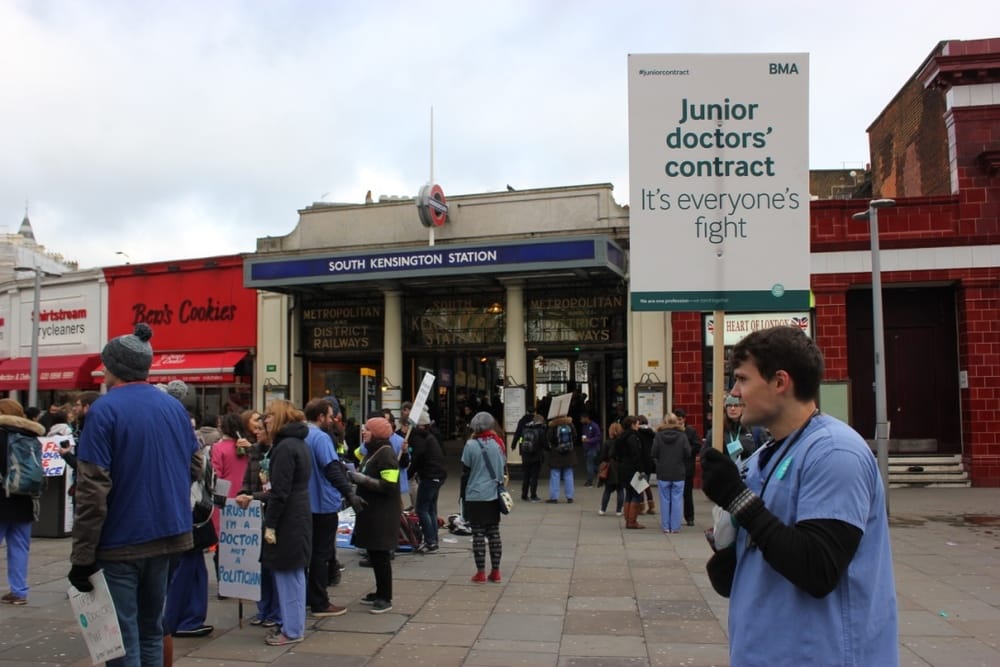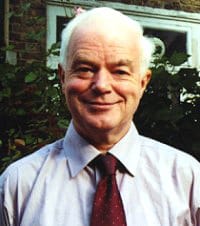Medics support Junior Doctor strike action
While Junior Doctors picketed hospitals on Tuesday, students garnered support form the public

On Tuesday, junior doctors went on strike for 24 hours, in protest against the government’s proposed changes to their contracts. Doctors say these changes will involve both dangerously long working hours for them, which will in turn endanger patients, as well as an effective pay cut.
Peaceful picket lines were set up from 8:30am outside Chelsea and Westminster, Charing Cross, Hammersmith and St. Mary’s hospitals, as well as others throughout the country. Striking doctors wrapped up at around 4pm.
Junior doctors also gathered outside South Kensington, Paddington and Hammersmith stations, joined by students, who handed out flyers, stickers and spoke to members of the public on the issue.
Junior doctors aren’t necessarily fresh from medical school
The picketers themselves wore armbands and fluorescent jackets, issued to them by the BMA. Medical students were not allowed to join the official picket lines, but did aid doctors in spreading the word.
Up to one in ten operations were cancelled, although 10,000 of the estimated 26,000 went into work on Tuesday, according to the BBC, partly because doctors on emergency care were not striking.
The strike comes after contract negotiations between NHS England and the British Medical Association (BMA) once again broke down, having re-started in December after the last strike was cancelled.This was the first of three planned strike days, with another emergency care only strike lasting for 48 hours planned for the 28th of January, and a full day walk-out penned for the 10th of February.
Acas, the professional body that has been mediating the talks, said on Wednesday that negotiations would start again yesterday and continue today. After protests back in October, junior members of the BMA were balloted as to whether to take industrial action. 98% voted for a full strike. However, the industrial action then planned for three dates in December was suspended after contract negotiations with the government were restarted.
An agreement could not be reached within the allotted time, so at the start of this year the BMA announced renewed plans for strike action.
Junior doctors aren’t necessarily fresh from medical school. The title ‘junior’ includes any doctor who has finished medical school but is not yet a consultant. The BBC estimates that almost a third of England’s medical workforce are junior doctors. The dispute is only affecting doctors working in England, as the contracts in Wales and Scotland won’t be changing, with Northern Ireland is yet to decide.
Jennie Watson, DPW and medical student, speaks on the action
As someone who will be directly affected by the junior contract change, and someone whose partner is already being ravaged by a career in the NHS, I could flood Felix with personal stories and stories from friends as to why this week’s industrial action was necessary. Instead I want to talk about the impact on Imperial’s 2000 medical students. Although we knew we were in for a tough ride when we applied to medical school, we did not sign up a life almost completely devoid of evenings and weekends – a life without friends, family or home life.
Contrary to Government spin, we are not in medicine for money; the additional costs of professional insurance and exams make our £23,000 starting salary pretty meagre. As medical students we cannot officially strike, nor are we eligible to vote on industrial action, despite having just as much of a stake as any qualified doctor. This week Union Council voted to support junior doctors. Not only do the proposed changes pose a massive threat to the future wellbeing of all medical students, but the threat of a mass exodus of doctors may also risk the quality of teaching we can receive on the wards.
I trust that you, the extraordinarily intelligent and well educated students of Imperial, are able to see though Government spin, and will stand alongside us. The NHS will survive for as long as there are folk left with the faith to fight for it.





